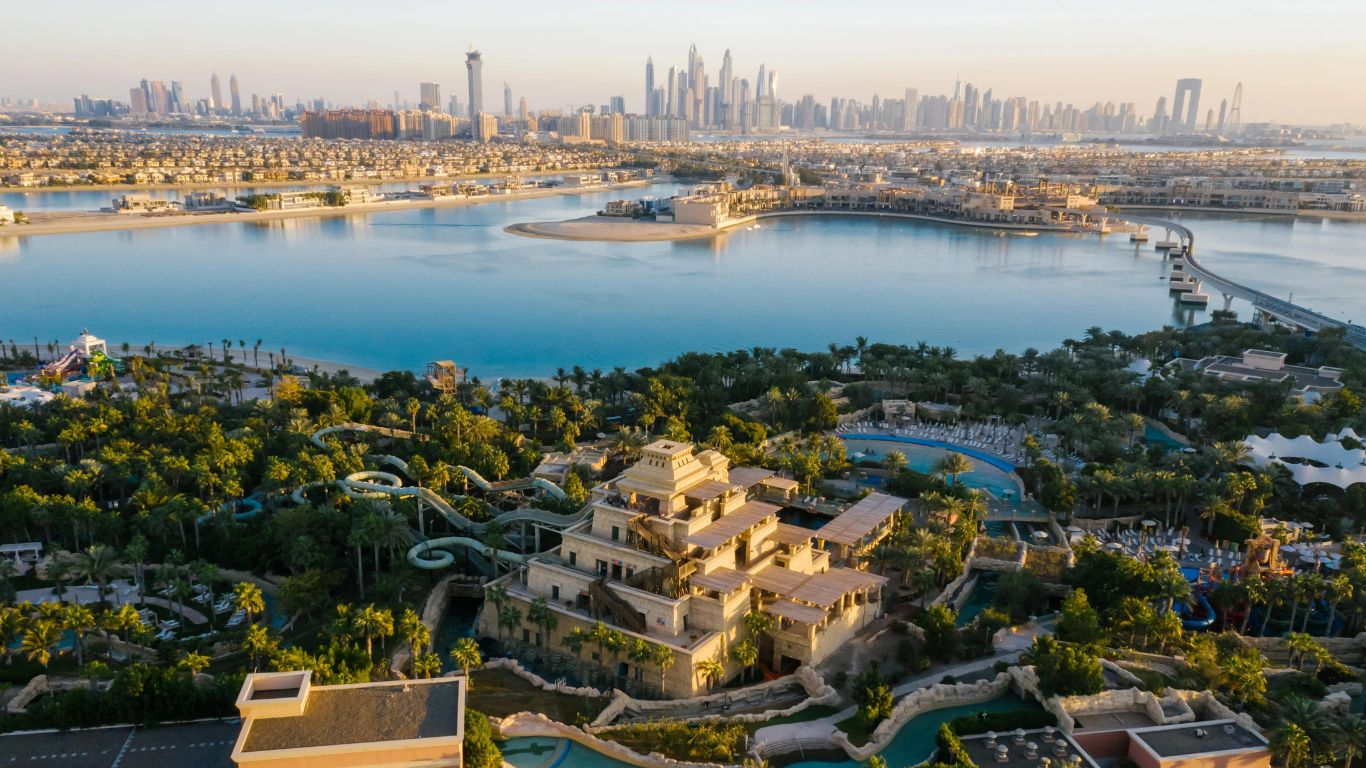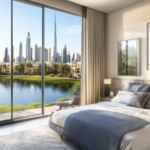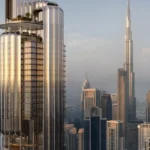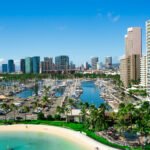Now Reading: Dubai Real Estate 2025: Smart Lifestyle Homes in High Demand
-
01
Dubai Real Estate 2025: Smart Lifestyle Homes in High Demand
Dubai Real Estate 2025: Smart Lifestyle Homes in High Demand
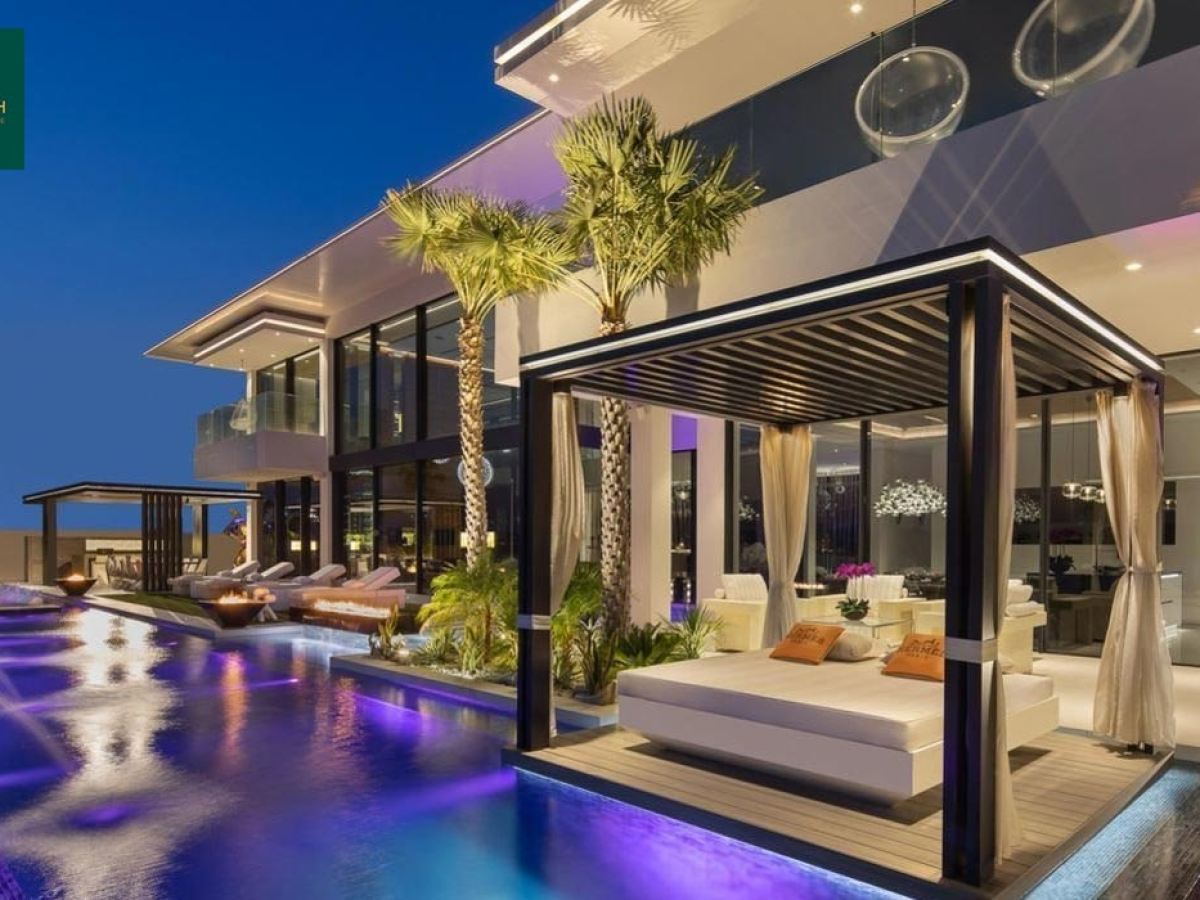
Table of Contents
Imagine stepping into a sleek villa, your AI-driven home adjusting the lights to match your mood, a private terrace perfect for morning coffee, and a community buzzing with smart apps organizing yoga classes and barbecues. This is the heart of Dubai’s smart lifestyle homes in 2025, where real estate is redefining modern living with technology, luxury, and connection. These aren’t just homes they’re vibrant sanctuaries that blend futuristic innovation with human warmth, drawing families, professionals, and investors to a city that feels both ambitious and welcoming.
Dubai is a global hub that thrives on bold ideas, balancing cutting-edge technology with a multicultural spirit. In 2025, smart lifestyle communities like Dubai Creek Harbour, Dubai Hills Estate, Mohammed Bin Rashid City (MBR City), and Jumeirah Village Circle (JVC) are leading the real estate surge, offering villas, townhouses, and apartments with AI-driven systems and lifestyle-focused amenities. From smart climate control to community wellness hubs, these homes are in high demand, shaping the future of urban living. Let’s explore why Dubai’s smart lifestyle homes are capturing global attention.
The Allure of Smart Lifestyle Homes
What makes Dubai’s smart lifestyle homes so irresistible? It’s their ability to blend advanced technology with a lifestyle that feels personal and connected. Picture yourself in a Dubai Creek Harbour apartment, where voice-activated systems adjust your home’s ambiance, or in a Dubai Hills Estate villa with a smart irrigation system nurturing your garden. MBR City’s waterfront homes offer AI-enhanced security and lagoon views, while JVC’s affordable townhouses are surrounded by 33 parks with smart community apps for events. These communities, crafted by developers like Emaar, Nakheel, and Sobha Realty, are built to make every day feel seamless and joyful.
Each community has a unique vibe. Dubai Creek Harbour integrates smart technology with waterfront serenity, featuring AI-driven wellness hubs and the upcoming Creek Marina. Dubai Hills Estate offers upscale living with green spaces, the Dubai Hills Mall, and an 18-hole golf course. MBR City dazzles with its 7-km Crystal Lagoons and resort-style amenities, while JVC’s village-like charm includes parks and smart community systems. Residents enjoy amenities like rooftop gyms, smart apps for community events, and 24-hour concierge services, alongside proximity to top schools like GEMS International and business hubs like DIFC, just 15-25 minutes away.
The homes are designed for modern living. Dubai Creek Harbour’s Creek Waters offers 1- to 3-bedroom smart apartments with AI-driven climate control and energy monitoring. Dubai Hills’ Park Heights features 4- to 6-bedroom villas with smart home automation. MBR City’s District One boasts mansions with AI-enhanced security and spa-inspired bathrooms, while JVC’s Circle Villas provide 3- to 5-bedroom layouts with access to smart community platforms. These properties combine cutting-edge technology like voice-activated lighting and energy-efficient designs with lifestyle amenities like infinity pools and co-working spaces, creating homes that feel both futuristic and human.
Why Smart Lifestyle Homes Are in High Demand
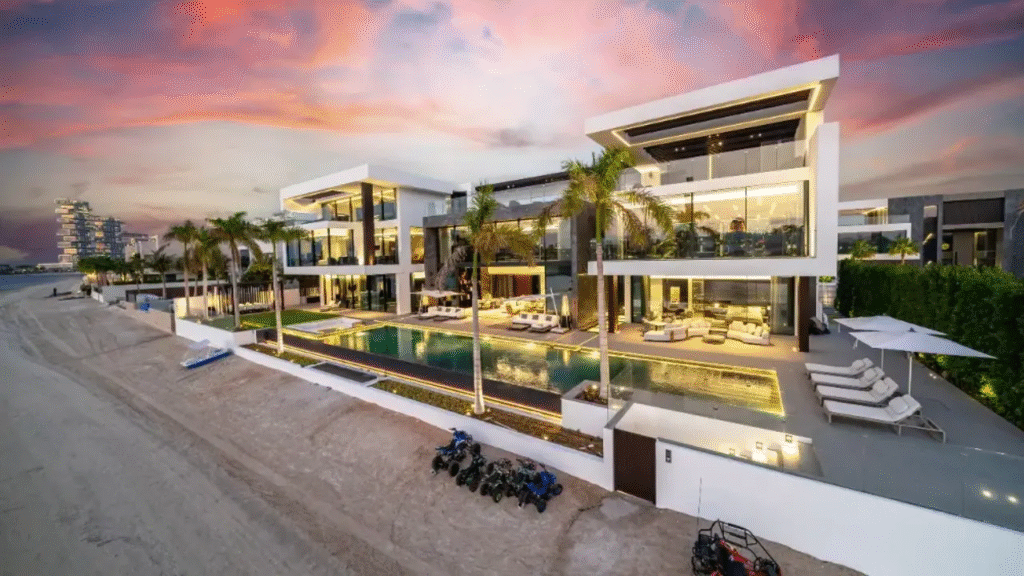
The numbers behind Dubai’s smart lifestyle homes are compelling. In 2025, property values are rising 9-13% year-on-year, aligning with Dubai’s 11.3% market average. MBR City villas average AED 10-25 million, with 15% growth over five years, while JVC apartments start at AED 700,000, up 10% annually. Dubai Hills villas fetch AED 10-20 million, and Dubai Creek Harbour apartments range from AED 1.7-2.2 million, with 12% growth. Rental yields are strong at 5-8%, driven by demand from tech-savvy families, professionals, and expatriates. Short-term rentals, fueled by Dubai’s 17.2 million visitors in 2024 and a projected 25 million by 2030, achieve 70-80% occupancy, with nightly rates of AED 500-2,500.
Smart technology and lifestyle appeal drive this demand. Residents are drawn to features like AI-driven home systems, smart security, and community apps that streamline daily life, reflecting a global shift toward tech-enhanced living. JVC offers affordability, making it ideal for young families and first-time buyers, while Dubai Hills and MBR City attract affluent buyers seeking exclusivity. Dubai Creek Harbour’s smart communities appeal to tech enthusiasts. Off-plan projects, like Sobha Hartland II in MBR City and Creek Waters 2, account for 40-50% of sales, with buyers snapping up units for their tech and lifestyle features. Dubai’s reputation as a global innovation hub attracts buyers from Europe, Asia, and North America.
Dubai’s investor-friendly policies fuel the trend. Full freehold ownership allows global buyers to invest without restrictions, and the UAE’s tax-free environment no income, property, or capital gains taxes maximizes returns. Off-plan properties require just 10-20% upfront, lowering the entry barrier. High-value purchases qualify for the UAE’s Golden Visa, offering residency benefits that appeal to families and professionals. Connectivity is seamless, with Sheikh Zayed Road, Al Khail Road, and the Dubai Metro linking these communities to Downtown Dubai and DIFC within 15-25 minutes.
A Lifestyle That Feels Connected and Smart
Living in Dubai’s smart lifestyle communities is about more than technology it’s about connection and joy. In Dubai Creek Harbour, residents use smart apps to join waterfront yoga sessions or community events at the Creek Marina. Dubai Hills offers golf course strolls, tech-enabled festivals at the Dubai Hills Mall, and co-working spaces for professionals. MBR City’s Crystal Lagoons host smart-monitored water sports and family picnics, while JVC’s 33 parks are perfect for bike rides and community barbecues organized via smart platforms. These neighborhoods are designed to foster bonds, with safe spaces, smart sports facilities, and community centers that bring people together.
Take Aisha, a mother of two in JVC. “The community app makes life so easy,” she says. “We join park events, and the kids love the play areas.” Omar, a professional in Dubai Hills, values the tech. “My villa’s AI system saves energy, and the mall is steps away,” he shares. Noor, a young mother in Dubai Creek Harbour, cherishes the smart features. “Our apartment adjusts to our routine, and the wellness hub is amazing,” she says. In MBR City, Sarah, a British expat, adores the lagoon. “The smart security gives us peace, and the water views are stunning,” she says.
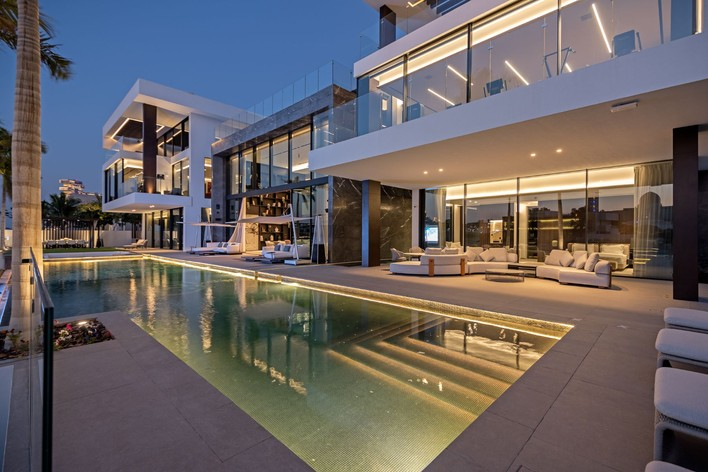
Sustainability is a key focus. Communities like Dubai Creek Harbour and Dubai Hills incorporate solar panels, smart irrigation, and energy-efficient designs, aligning with the Dubai 2040 Urban Master Plan. JVC’s green spaces and MBR City’s renewable energy initiatives reduce car reliance, while projects like Sobha Hartland II feature EV charging stations and AI-driven utilities, appealing to eco-conscious buyers. These efforts make Dubai’s smart lifestyle homes not just tech-forward but environmentally responsible.
Challenges to Navigate
These communities come with hurdles. Maintenance fees average AED 8-12 per square foot in JVC and AED 10-15 in Dubai Hills, MBR City, and Dubai Creek Harbour, higher than in emerging areas like Dubai South. Ongoing construction in newer phases, like Sobha Hartland II or Creek Waters 2, may bring temporary noise or delays. The short-term rental market, while lucrative, faces competition from hotels, which could pressure yields in oversaturated periods.
Yet, these challenges are part of the opportunity. Maintenance fees support smart amenities, from AI-driven security to 24-hour concierge services, which attract residents and tenants. Early investment in developing phases offers lower prices, with historical trends showing 15-20% appreciation for early buyers in JVC and Dubai Creek Harbour. Dubai’s real estate market, with $142.4 billion in sales in 2024, remains robust, and smart lifestyle homes are a leading driver.
Stories That Bring It to Life
The human stories behind Dubai’s smart lifestyle homes make them shine. Khalid, a father in JVC, loves the community vibe. “The app organizes park events, and the kids join sports clubs,” he says. Maya, a professional in Dubai Hills, cherishes the tech. “My villa’s smart system is a game-changer,” she says. Sarah, a retiree in MBR City, enjoys the tranquility. “The AI security and lagoon views are a dream,” she says. In Dubai Creek Harbour, Ahmed sees both profit and joy. “My apartment was AED 1.8 million, and it’s up 10%,” he shares. “But I love the smart wellness features.”
These stories reflect the dual appeal of Dubai’s homes: they’re futuristic sanctuaries and smart investments. Whether it’s a community event in JVC, a tech-enabled festival in Dubai Hills, or a lagoon picnic in MBR City, these communities create moments that linger.
Tips for Aspiring Buyers
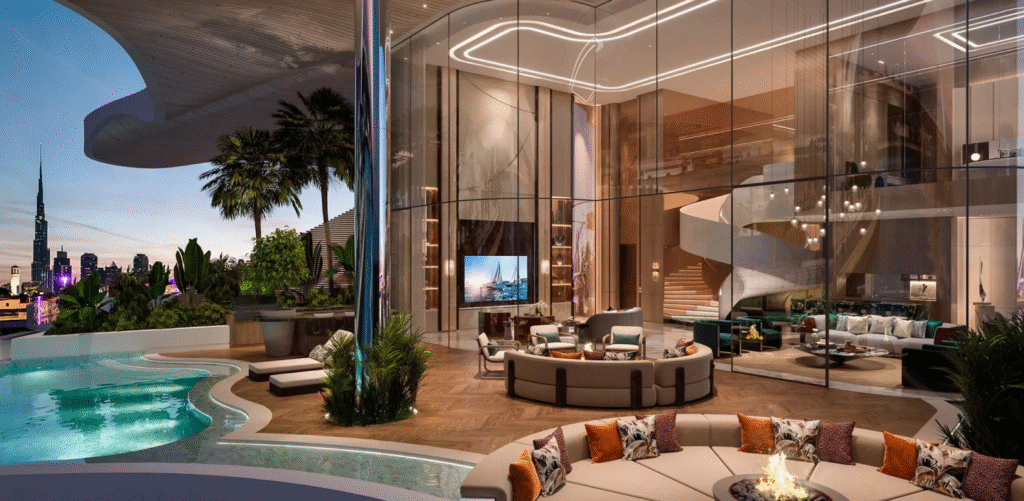
Ready to dive into Dubai’s smart lifestyle real estate? Here’s how to make it happen:
- Research Market Trends: Study price growth and rental yields in JVC, Dubai Hills, MBR City, and Dubai Creek Harbour to find high-potential opportunities.
- Choose Trusted Developers: Work with Emaar, Nakheel, or Sobha Realty for quality and reliability.
- Plan for the Long Term: Aim for a 5-10 year horizon to maximize appreciation, especially in off-plan projects.
- Leverage Expertise: A local real estate agent or lawyer can navigate freehold laws and secure the best deals.
The Future of Smart Lifestyle Living
In 2025, Dubai’s smart lifestyle homes are more than real estate they’re a vision of future living. New projects like Sobha Hartland II, Park Heights 3, and Creek Waters 2 are pushing the boundaries of technology and lifestyle. As Dubai aims for 25 million visitors by 2030, these communities will remain vibrant hubs, driving property values and rental demand higher.
For residents, it’s about the joy of connection smart-organized events, lagoon picnics, and tech-enhanced wellness. For investors, it’s a chance to build wealth in a city that’s rewriting the rules of real estate. Dubai’s smart lifestyle homes are where dreams meet reality, offering a futuristic, community-focused lifestyle that’s hard to resist. In 2025, these homes aren’t just in high demand they’re shaping the future of Dubai’s charm.
read more: Unlock Eco Bliss: Dubai’s Projects Redefine Vibrant Green Living!




